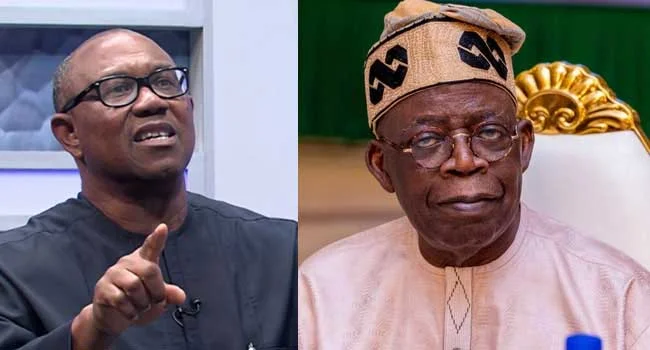On Wednesday Morning, Nigerian homes flickered into darkness once again. As tokunbo generators whirred to life, former governor Peter Obi used the blackout as a stage for political critique.
With measured irony on his official X (formerly Twitter) account, Obi reminded citizens of Tinubu’s acclaimed campaign pledge: “If you don’t give us constant electricity in four years, don’t vote for me.” The grid’s collapse, he said, was not a mere outage—it was a breach of trust too glaring to ignore.
Frankly put: the blackout wasn’t just inconvenient—it reframed Tinubu’s presidency under emergency lighting.
Peter Obi stated that the failure to provide constant electricity is too glaring for Nigerians to forget Tinubu’s promise.
According to the former Governor of Anambra State, there are now repeated blackouts despite billions of dollars spent in the power sector.
National Failures
He lamented that Tinubu’s administration has presided over more national grid failures and power outages than any government in history.
Peter Obi further urged President Tinubu to prioritise generating and distributing more electricity to power businesses, especially SME, which will create jobs and grow the economy.
The post read, “The impact is too glaring for Nigerians to forget the promise of Mr. President while campaigning on 22nd December 2022 that: “If I Don’t Give You Constant Electricity in The Next 4 Years, Don’t Vote For Me For Second Term”.
“For a nation already stated to have more people living without electricity than anywhere in the world, there could not be any more firm comforting political promise than this.
“Yet APC and its current Government have presided over more national grid failures and power outages than any government in our history. There are now repeated blackouts despite billions in power investments.
“Over the years, billions of dollars have been spent on the power sector in Nigeria. In fact, Nigeria has spent more on power generation with little or no increase in supply, than countries like Vietnam, Egypt, Indonesia, and Bangladesh. Yet, while some of these nations have proudly doubled their electricity generation, and distribution by adding tens of thousands of megawatts to transform their economies and increase their GDP, Nigeria has barely crawled from 4,500MW to 5,000MW.
Did You Miss? Blackout As National Grid Collapses Again
“With a GDP of about $200 billion, Nigeria has the capacity to significantly boost its economy if it invests properly in electricity. Generating even a bare minimum of 10,000MW could raise our GDP by about 50%, which will unlock industrial growth, and create millions of jobs. But rather than focusing on this, which will improve our economy, we are focused on coastal roads that will contribute far less to our economic growth, while factories shut down, jobs disappear, businesses collapse, and ordinary Nigerians live in darkness.”
Every Blackout: A Cut That Fuels the Critique
Grid collapses have become alarming forecasts, social media erodes when thick with online complaints, small businesses bleed, and families grow wary of policies that promise more than they deliver.
Obi’s statement was sharp: Nigeria bleeds more darkness than light because, unlike countries like Egypt or South Africa, the government forgets it carries the litany of absence.
Labour Party’s standard bearer transformed public frustration into ammunition — and Nigerians clicked, read, and shared with weary agreement.
Power Outage as National Mirror
Obi’s message wasn’t just snark — it was a mirror held to leadership. Nigeria still limps with less than 10,000 megawatts, even as Africa’s “smaller nations” like Egypt and South Africa cross 40,000MW. He warned: without power, jobs vanish, factories go dark, the economy stalls—and governance looks hollow.
When the lights go off in Nigeria, it’s not just buildings that blackout—it’s hope.
When Darkness Speaks, Leaders Listen
In Nigeria, powerful words aren’t always spoken under bright lights. Sometimes, they come through darkness and resonate deeper. Peter Obi’s jeer surfaced light on promises turned shadows.
Now, it’s on Tinubu to bring brightness—not promises—to the lives that pay the power bills and, much more, pay attention.







